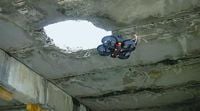In a significant move towards modernizing Greece's defense capabilities, Prime Minister Kyriakos Mitsotakis is set to unveil a comprehensive defense doctrine and an ambitious arms procurement program during a parliamentary session scheduled for 11 a.m. today. This initiative aims to transition the Greek Armed Forces into a new era, adapting to technological advancements and contemporary forms of warfare.
Mitsotakis will outline two main pillars of this strategy. The first focuses on enhancing the nation's defense infrastructure through ongoing and future arms programs. He is expected to discuss the integration of drones, advanced radar systems, and improved anti-aircraft and anti-submarine defense capabilities, as well as the introduction of an anti-drone dome, known as the "Achilles Shield." This initiative, which has garnered attention, stemmed from discussions with Israeli Prime Minister Benjamin Netanyahu, highlighting a growing defense collaboration between the two nations.
The second pillar emphasizes the adoption of modern technology, particularly in cyber defense and cyber warfare strategies, lessons learned from the ongoing conflict in Ukraine. The new plan envisions technological upgrades facilitated by partnerships with research centers and Greek companies, aiming to foster innovation and develop domestic weapon prototypes.
Mitsotakis is also expected to stress that no procurement will proceed without the involvement of Greek components or personnel. This approach is designed to bolster the local defense industry, with companies like the Hellenic Aerospace Industry (EAB), shipyards, and Hellenic Defense Systems (EAS) playing crucial roles in international partnerships.
One notable aspect of this strategy is the proposal from French Group Naval, the manufacturer of the FDI frigates, to establish a production line for surface vessels, submarines, and unmanned systems in Greece. This initiative aligns with the government's broader defense objectives and is anticipated to create jobs and enhance local capabilities.
Additionally, during today's parliamentary debate, Mitsotakis will address the recent controversy regarding pay increases for security forces, which were initially excluded from the announced raises for the Armed Forces. This discussion will provide an opportunity for the Prime Minister to clarify the rationale behind these decisions, particularly as they relate to the modernization of Greece's military forces.
In another development, on March 31, 2025, Greek company Terra Spatium SA announced it had signed a contract with the Ministry of Climate Crisis and Civil Protection to supply eight INTRUDER SE drone systems. These drones are intended to support the operations of the Emergency Disaster Response Units (EMAK) of the Fire Brigade. Developed by GEP Unmanned Technologies, the INTRUDER SE is designed to meet stringent specifications, including waterproofing and durability, capable of withstanding drops from 20 meters while remaining operational in extreme temperatures.
The INTRUDER SE features advanced capabilities, including an infrared lighting system for nighttime operations and a highly sensitive microphone to enhance situational awareness. With a flight autonomy of 11 minutes and a range of 5 kilometers, these drones are expected to significantly enhance the Fire Brigade's operational efficiency. Delivery of the systems is anticipated to be completed within three months.
Furthermore, the Hellenic Center for Innovation (ELKAK A.E.) is inviting Greek companies to submit proposals for 22 programs aimed at strengthening the Armed Forces, with a particular focus on designing and constructing a national gunboat. The announcement of the 2025 Program Horizon aims to engage the domestic defense industry in various initiatives, including the development of offshore patrol vessels (OPVs) that can fulfill multiple roles, from supporting the Coast Guard to more complex maritime operations.
The OPVs, ranging from 50 to 120 meters, are envisioned to operate effectively in the Aegean Sea alongside missile boats, thus enhancing Greece's maritime security. The ELKAK initiative, however, is not an immediate commitment to implementation but rather a step towards understanding the capabilities of the local ecosystem and the available technological solutions.
In addition to the gunboat project, ELKAK has announced two preliminary consultation requests for developing a surveillance system for critical infrastructure using acoustic sensors to detect and monitor unmanned aerial vehicles (UAVs). This system aims to ensure timely identification of potential threats, even under challenging urban conditions.
The second request pertains to a portable and dynamically deployable surveillance system for extensive areas, which can be rapidly set up on various platforms, including land vehicles or vessels. This system will leverage advanced data analysis from multiple sensors and utilize artificial intelligence to automate target tracking and recognition in real time.
As Greece navigates these significant developments in its defense strategy, the emphasis on local industry collaboration and technological advancement reflects a broader commitment to enhance national security amidst evolving geopolitical challenges. The Prime Minister's announcements today are poised to reshape the landscape of Greek defense, fostering innovation while addressing critical operational needs.






